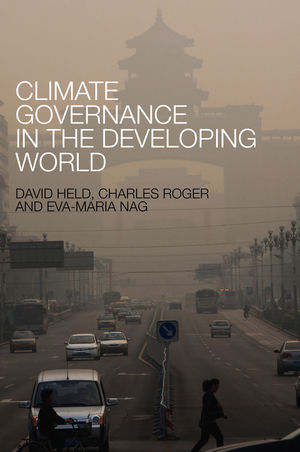This week President Barack Obama and the US Environmental Protection Agency are announcing new regulations requiring existing power plants to produce 30% less carbon pollution by the year 2030 than they were in 2005. Here, we bring together a selection of reviews on books covering some of the most important debates in the climate change literature.
Interested in how climate change is reported in the media?
 Climate Change in the Media: Reporting Risk and Uncertainty by James Painter
Climate Change in the Media: Reporting Risk and Uncertainty by James Painter
With extreme weather on the rise across the globe, the way that the media reports climate change and its potential for damage is becoming increasingly important. In Climate Change in the Media: Reporting Risk and Uncertainty, James Painter looks at the way in which newspapers have shifted the way that they report climate change from a language of uncertainty to one of risk. Christopher Shaw finds this book to be a useful summary of climate politics and climate risk, but critiques the lack of discussion on how newspapers’ commercial pressures help to contribute to the wider discourse of excessive consumption, which in turn contributes to climate change. Read more…
Interested in the effect that climate change has on food production?
Global Food Futures: Feeding the World in 2050 by Brian Gardner
In Global Food Futures, Brian Gardner sets out to present a scholarly, balanced approach to the contentious area of food production and supply up to 2050 . This text aims to tackle the global food situation in all its totality, from agricultural production, technological advance, dietary concerns, population changes, income trends, environmental issues, government food and agriculture policy, trade, financial markets, macroeconomics and food security. This book introduces the reader to a vast range of inter-disciplinary material to assess the development of future food demand and supply and global food production, writes Elaine Kellman. Read more…
Interested in grassroots initiatives set up to tackle global warming?
Bird on Fire: Lessons from the World’s Least Sustainable City by Andrew Ross
How do we change from unsustainable lifestyles to more ethically responsible ones? In Bird on Fire, Andrew Ross charts the lessons we must all learn from the world’s least sustainable city, and stresses a strong social message: that sustainability cannot be achieved without addressing the problems of and learning from the grassroots. The message of this book is simple: that sustainability is not achieved through technological fixes – a point that those in the White House and Downing Street should take note of. Ross illustrates this message brilliantly throughout the book, by looking at a number of examples of sustainable practices and livelihoods counter to the neo-liberal practices of the Arizona state, finds Ayona Datta. Read more…
Interested in low-carbon futures?
 Living in a Low-Carbon Society in 2050 by Horace Herring
Living in a Low-Carbon Society in 2050 by Horace Herring
What would it be like to live in a low carbon world? Governments may talk about reducing carbon dioxide (CO2) emissions by eighty per cent by 2050, but any pursuit of significant change will require drastic changes in either our energy supply or our lifestyles, or preferably a combination of both. Michael O’Regan argues that although this book is not as intensive nor authoritative as it claims, for those thinking about moving to a low-carbon world, it is heartfelt, sincere and a worthwhile read. Read more…
Interested in climate change policies around the world?
Climate Governance in the Developing World edited by David Held, Charles Roger, and Eva-Maria Nag
Since 2009, developing states including China, Brazil, Ethiopia, and Costa Rica have been advancing unprecedented pledges to mitigate their greenhouse gas emissions, offering new, unexpected signs of climate leadership. Some scholars have gone so far as to argue that their targets are now even more ambitious than those put forward by their wealthier counterparts. But what really lies behind these new pledges? This book seeks to offer a comprehensive analysis of the unique challenges that developing countries face in the domain of climate change. Hayley Stevenson finds that this volume will be of great value to both the scholarly world and the policy world. Read more…










